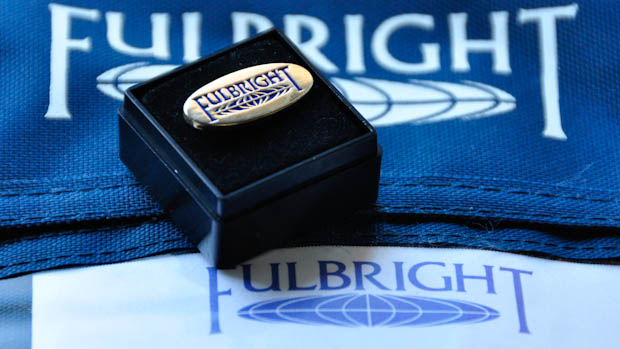
Courtesy of Fulbright Association
Yale has produced the 12th most Fulbright recipients among American research institutions, as 20 Yalies were awarded the prestigious grant for the 2016–17 academic year.
The list “Top Producers of Fulbright Scholars and Students, 2016–2017” was published in The Chronicle of Higher Education on Feb. 19. Brown University topped the list with 30 awardees, and Georgetown University and the University of Notre Dame trailed behind with 27 each. Citing Yale’s consistent top performance among U.S. academic institutions even with a relatively small student body, Yale Fulbright recipients and faculty members interviewed praised the University’s dedication to helping its students apply to the program.
“We need this kind of commitment more than ever in a global era of rising nationalism and political crises related to refugees, war zones and the complicated flow of capital,” Yale College Dean Jonathan Holloway said. “I also want to point out that our students’ success in securing these fellowships is a lovely testament to the hard work of our fellowship advisors in [the Center for International and Professional Experience].”
Fulbright students interviewed likewise attributed much of their success to Yale’s study abroad resources and supportive faculty.
Millicent Cripe ’16, a 2016–17 recipient currently studying Australia’s primary health network, said Yale connects Fulbright applicants with faculty members in their fields of interest, which enhanced her application.
Hannah Geressu ’16, a Fulbright student currently working as a teaching assistant in Germany, praised Yale’s sense of community for inspiring her application, which she said asked her to focus on community engagement. Grace Brody ’16, an awardee who declined the grant in favor of graduate school, said Yale’s unique emphasis on study abroad opportunities helped her application stand out.
Three Fulbright recipients interviewed said Yale professors and CIPE advisors who encouraged them to apply or guided them through the application process were the most valuable resources.
“I credit the strong relationships I had with my professors at Yale for really, really encouraging me to try this out,” Geressu said.
Assistant Dean of the Graduate School of Arts and Sciences Robert Harper-Mangels served as the official Fulbright Program adviser in Yale’s graduate and professional programs from 2008 to 2016 before transferring the duty to Associate Dean of Graduate Student Academic Support Richard Sleight, who worked with this year’s applicants. Harper-Mangels noted that all universities that submit Fulbright applications are required to have a Fulbright Program adviser, but Yale has benefited from having an individual adviser for both Yale College and the Graduate and professional schools.
Undergraduates may benefit more from someone with experience in giving advice on how to go abroad to conduct research for the first time, Harper-Mangels said. Doctoral students, on the other hand, are more likely to need someone who can help them discuss their work in nontechnical terms that work well in the context of a Fulbright application, which focuses more on how the research will “promote cultural understanding and the mutual exchange of ideas.”
He also said that many students are drawn to the program’s established reputation as a popular destination for Yale graduates, in addition to promotion efforts by the administration.
“[Students] sometimes need a little guidance to tailor their applications to speak to the goals of the Fulbright Program,” Harper-Mangels said. “But most of our applicants are starting with a strong base of ideas and a slate of relevant skills before they even start the application.”
Cripe said the Fulbright Program attracts a wide range of students who do not hail exclusively from institutions that typically dominate the most competitive fellowship opportunities. She added that the Fulbright operates underneath a mission of cultural exchange and as a result strives to reach more than just “one small slice of the American body” located at places like Yale.
“It’s not something like the Rhodes and the Marshall where it’s basically just the Ivy League and peer institutions,” Cripe said. “If the goal is cultural exchange you want a diverse set of Americans going abroad.”
She added that she was the only student in her local group of seven Fulbright students working in Australia to come from an Ivy League school.
Harper-Mangels echoed Cripe, but added that the countries that students apply to work in also review the applications and have the final say in who they ultimately invite.
“They may not be concerned with institutional or other forms of diversity the way we are in the U.S.,” Harper-Mangels said. “First and foremost, they want good scholars that are doing research that is of interest to people in their country.”
Last year, Yale produced 26 Fulbright recipients, the fourth most from an American research institution, and 21 the year before, which was the sixth most in the country.







